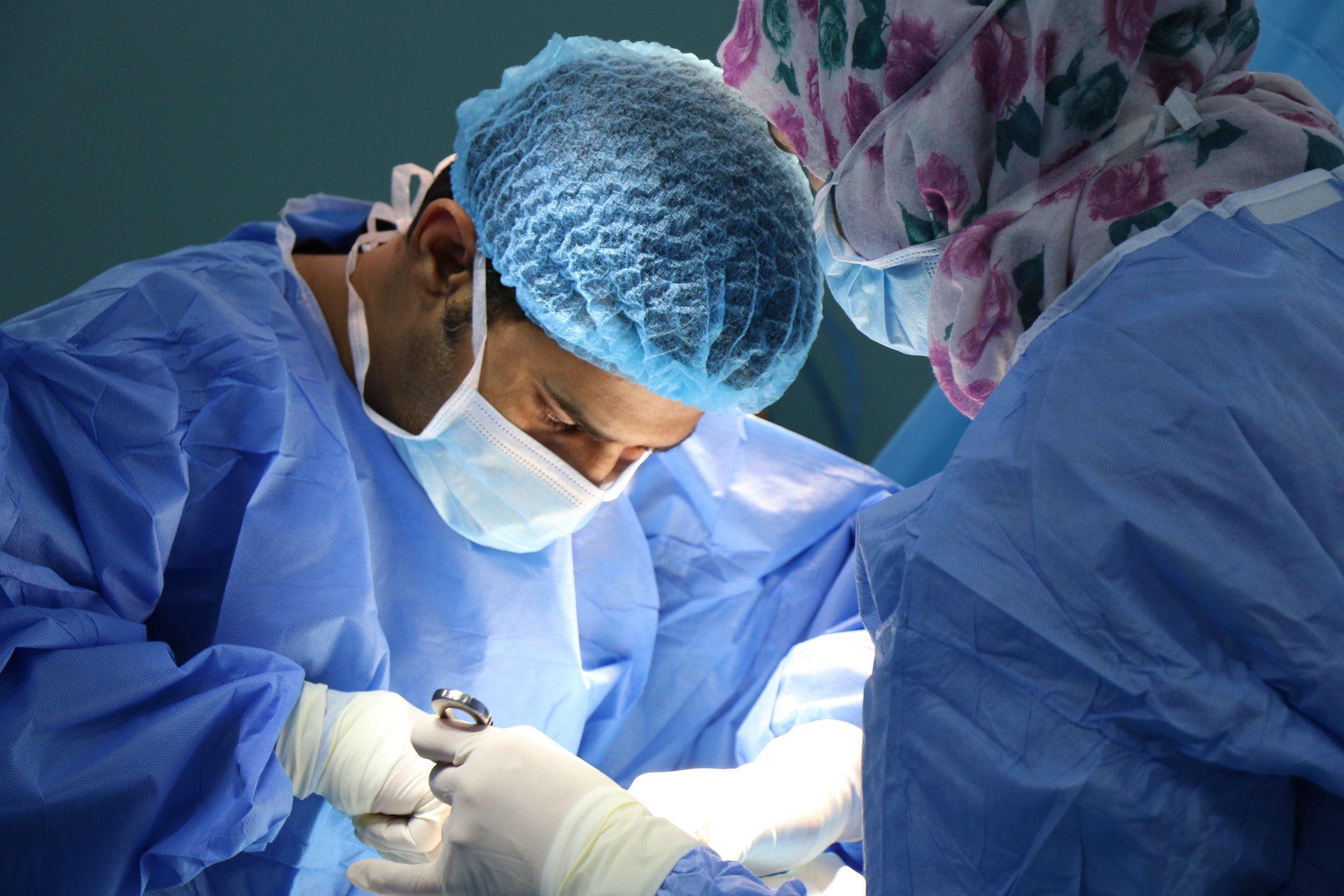
There are more types of cancer treatment than most people probably realize. However, the kind your medical team recommends will be based on what suits your particular situation best. This may be radiation, chemotherapy, surgery, or a combination of treatments.
Surgery can become necessary for cancer when a tumor is solid or concentrated in a certain area of the body. It can be curative on its own or it can be combined with other forms of therapy for greater effectiveness. At Evansville Surgical Associates, you’ll have a team of experts to help you as you move toward recovery.
To learn more about cancer surgery, we’ll look at:
- Types of cancer treatment
- When cancer surgery is the best option
- Oncological procedures at Evansville Surgical Associates
A cancer diagnosis is scary for anyone. Knowing your options and having a team of experts supporting you can make all the difference.
Types of Cancer Treatment
Cancer treatment comes in many forms. There can be huge variations between each type of cancer treatment, but this actually benefits patients since they’re designed to best treat specific cases of cancer. To better understand cancer surgery, let’s look at the most common types of cancer treatment and see how they compare.
The most common types of cancer treatment are:
- Surgery
- Chemotherapy
- Radiation therapy
Cancer surgery serves multiple purposes for treating cancer. Not only can it be used in different stages of the treatment process, but it can also provide relief from other problems experienced due to cancer. Depending on the situation, cancer surgery can accomplish multiple goals at once or require multiple operations to accomplish them.
While often used in reference to cancer treatment, “chemotherapy” actually refers to any time drugs are used in the treatment of disease. Chemotherapy as a cancer treatment has evolved a lot over the years. It used to refer to one type of drug, but advances in medicine have provided new drugs that may work better than standard chemotherapy treatment in certain cases.
One of the most common forms of cancer treatment, radiation therapy uses rays or beams to fight the cancer cells in your body. This can be through the use of x-rays, gamma rays, electron beams, or protons just to name a few. Cancer cells grow and divide faster than normal cells in the body. Radiation stops this process and kills the cancer cells before they can develop.
Your medical team will determine which form of treatment is best for you. This will be based on multiple factors such as whether the cancer is benign or malignant, where it originated, how fast it’s spreading, and where to.
When Cancer Surgery Is the Best Option
Since it’s one of the most common forms of cancer treatment, surgery is able to address multiple forms of cancer as well as their symptoms. Cancer surgery is a local treatment, meaning that it only treats the area of the body where the cancer is located. It’s ideal for solid tumors and cancers that haven’t spread throughout the body.
It is possible that surgery may be the only form of cancer treatment that you need. However, it’s also possible that you will require other forms of treatment in conjunction with surgery.
The Role of Surgery in Cancer Treatment
Cancer can play different roles in the process of cancer treatment. This may be in combination with other forms of treatment or as the primary form of treatment.
Cancer surgery can be used for different purposes, including:
- Staging
- Removal
- Debulking
- Palliation
- Reconstruction
- Prevention
Staging
Staging is the process of determining the size of a tumor as well as if or where it has spread to. This usually involves taking a sample of lymph nodes from near the cancer. Lymph nodes are small organs shaped like beans that fight infections in the body.
Removal
The complete surgical removal of the cancer is known as curative or primary surgery. The surgeon will also remove some of the nearby tissue along with the cancerous portion. This tissue is known as the margin and helps ensure that the cancer does not return.
Debulking
Unfortunately, it’s not always possible to remove the entire tumor with surgery alone. In these cases, your surgeon will use surgery to remove as much of the cancer tumor as possible and treat what’s left with chemo or radiation therapy. This can happen for different reasons, such as removal doing too much damage to the body.
Palliative
Palliative surgery serves to relieve patients of the side effects caused by tumors. Tumors can put pressure on nerves resulting in pain, block the body’s natural pathways, and cause internal bleeding. Palliative surgery seeks to fix these problems and greatly increase your quality of life.
Reconstruction
Sometimes removal surgery can leave people dissatisfied with the cosmetic results. In these cases, reconstruction surgery can be used to restore the body’s appearance or functions. It can be done during the primary surgery or once you have had time to complete treatment and heal. It’s especially common for breast cancer patients and after head or neck surgery.
Prevention
Preventative surgery helps lower your risk of getting cancer. This can involve removing precancerous polyps in the colon, getting a mastectomy if you have a family history of breast cancer, or getting an oophorectomy if you have a family history of ovarian cancer.
Oncological Procedures at Evansville Surgical Associates
At Evansville Surgical Associates, we have a team of board-certified and fellowship-trained surgeons who are experts in their field. We offer comprehensive care from diagnosis to follow-ups in the treatment of benign and malignant tumors.
We offer oncological treatment for a variety of cancers, including:
- Breast cancer
- Gastrointestinal cancer
- Endocrine malignancies
- Lung cancer
- Lymph node
- Melanoma and other skin cancers
Cancer surgery is one of many types of cancer treatments. It can be used in combination with other forms of treatment or, in some cases, can remove the entire cancer on its own. Cancer surgery is best when used as a local treatment for solid tumors and cancers limited to one area of the body. At Evansville Surgical Associates, we are able to utilize surgery in order to treat a variety of cancers and aid you in your road to recovery.
Evansville Surgical Associates has been providing comprehensive and compassionate surgical care for over 50 years. Call us at (812) 424-8231 or (800) 264-8231, or email us with any general questions or comments you may have. We are available from 8:00 am to 4:30 pm if you would like to schedule an appointment.



